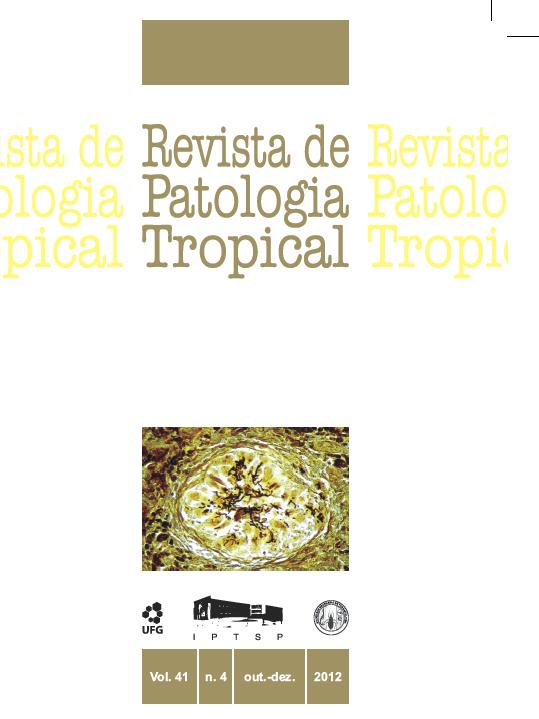Occurrence of mollusks, genus Biomphalaria, in parks of the city of Belo Horizonte, Minas Gerais, Brazil.
DOI:
https://doi.org/10.5216/rpt.v41i4.21705Keywords:
Biomphalaria, Mollusks, Municipal parks, Belo Horizonte, MG.Abstract
Until recently, schistosomiasis was considered the most prevalent endemic disease among populations in rural areas, especially in the northeastern and southeastern states of Brazil, and therefore classified as a “rural endemic disease.” Recent studies have shown that the epidemiology of this disease is changing by transmission in the outskirts of and even within large urban centers. The city of Belo Horizonte has 71 parks, 55 of which are open to the public. Of these 31 (43.6%) have one or more water collections. The objective of this study was to carry out a malacologicalsurvey, among the water collections in these 31 parks of Belo Horizonte. In 11 parks a total number of 551 snails of the genus Biomphalaria, intermediate host of Schistosoma mansoni, were collected. In addition, specimens of the genus Drepanotrema sp, Pomacea sp, Melanoides sp, Physa sp and Lymnaea sp, the latter an intermediate host of the parasite, which causes fascioliasis, were found. All
specimens of the genus Biomphalaria were negative for S. mansoni cercariae. However, considering the potential contamination of the environment with human feces containing S. mansoni eggs in combination with the presence of intermediate hosts, these findings serve as an alert for a possible installation of schistosomiasis transmission in the municipal parks of the city of Belo Horizonte.
Downloads
Downloads
How to Cite
Issue
Section
License
The manuscript submission must be accompanied by a letter signed by all authors stating the full name and email address, confirming that the material has not been published or is under consideration for publication elsewhere, and agreeing to transfer copyright in all media and formats for Journal of Tropical Pathology. The authors will not be paid for published articles. They are solely responsible for the content of those articles, even if the Editor holds the right to adjust them to the norms of the journal.
The reviewers will not be paid for the peer review process.

